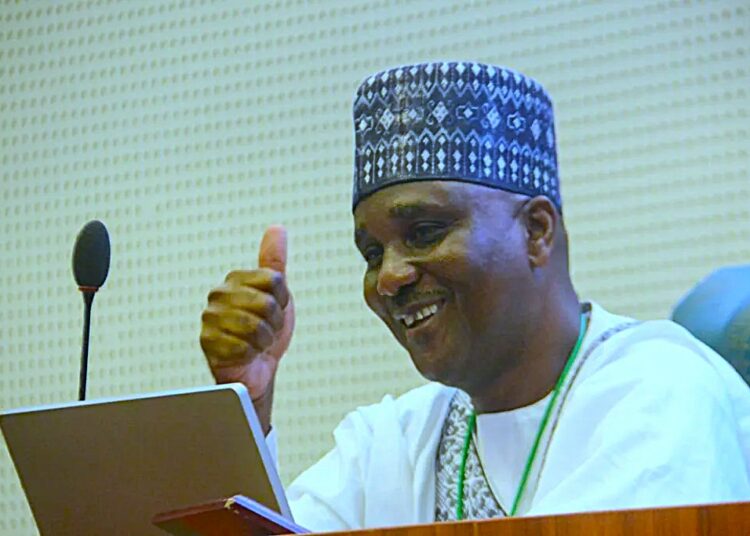The House of Representatives has reiterated its determination to ensure that public funds are appropriately utilised for the benefit of all citizens.
Speaker Abbas Tajudeen stated this at the meeting of the House Ad Hoc committee investigating the management of oil spill clean-up funds in the Niger Delta, which was held on Thursday at the National Assembly Complex in Abuja.
Represented by the House Chief Whip, Hon. Usman Bello Kumo (APC, Gombe), Abbas called for improved coordination between federal agencies and community-based organisations to ensure that the clean-up projects deliver tangible benefits to the people, including job creation, improved livelihoods, and restoration of the ecosystem.
“Our parliament conducts legislative activities to ensure that public funds are not only spent but are spent efficiently for the good of all.
“This investigation will help us determine who manages these funds, how they are applied, which communities are to benefit, and whether transparency and accountability were maintained throughout the process.
“We appeal to the agencies concerned to appear before this committee with the necessary information and evidence to help the committee make fair, balanced, and just recommendations.
“The House will continue to provide legislative oversight to ensure that the goals of the oil spill clean-up are achieved transparently and effectively,” he said.
The committee chairman, Hon. Okpolupm Etteh, reaffirmed the panel’s commitment to ensuring transparency, accountability, and justice in handling funds earmarked for environmental remediation in the region.
He said the investigation aims to uncover the truth behind the use of funds allocated for the Hydrocarbon Pollution Remediation Project (HYPREP) and other related interventions, to ensure that affected communities receive the relief and restitution they deserve.
“The House has mandated this committee to investigate the management of oil spill clean-up funds. Our goal is clear — to uncover the truth.
“We will scrutinise project implementation, procurement processes, training programmes, intelligence coordination, and the actual delivery of remediation and restitution to Niger Delta communities.
“When monitoring and verification reveal gaps, delays, or irregularities, the committee will not hesitate to identify those responsible and recommend corrective measures. This is about ensuring that funds meant for environmental recovery are used effectively for the people who have suffered the most,” Etteh added.
He further called on government agencies and institutions involved in the oil spill clean-up process to fully cooperate with the committee by promptly submitting all relevant information and documents.
“These agencies include the Hydrocarbon Pollution Remediation Project (HYPREP), the Nigerian Upstream Petroleum Regulatory Commission (NUPRC), the National Oil Spill Detection and Response Agency (NOSDRA), the Federal Ministry of Finance, and other related entities,” he added.





